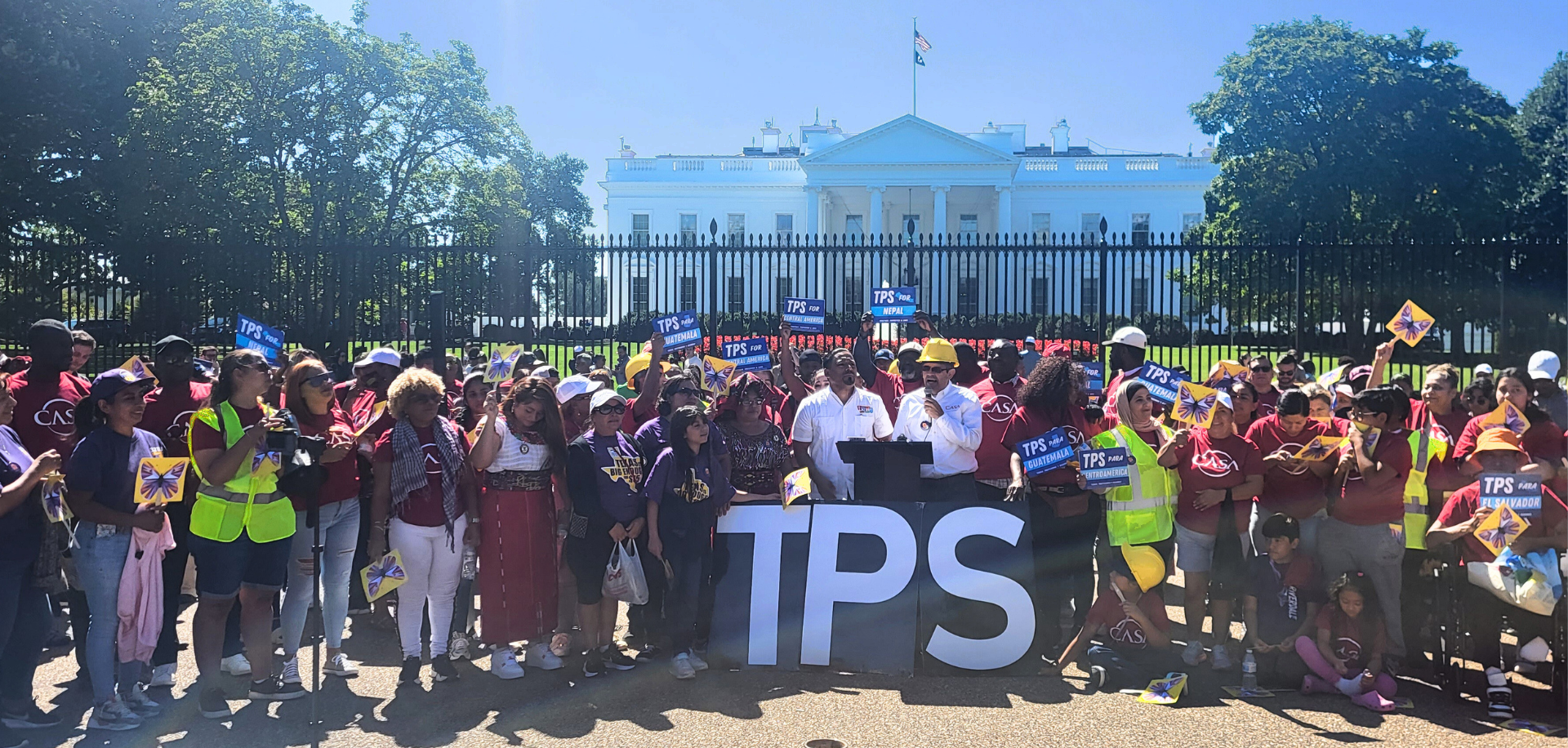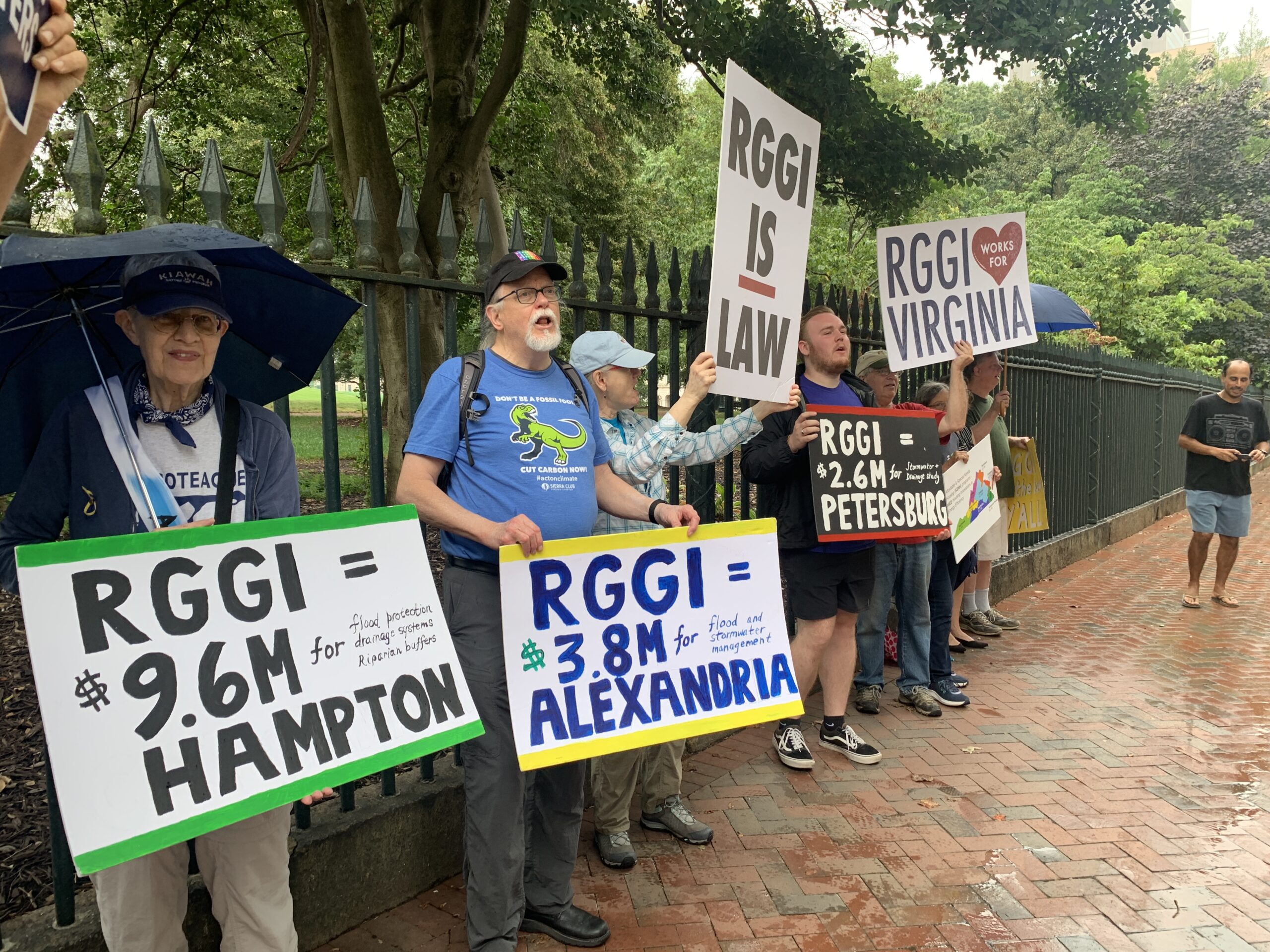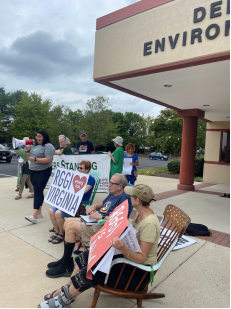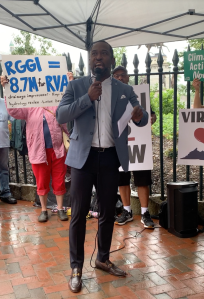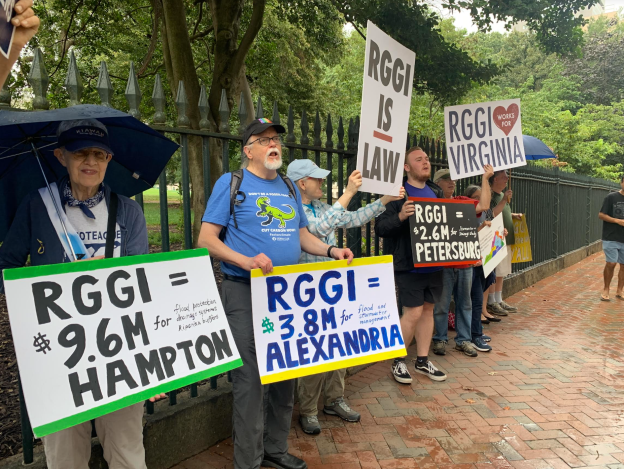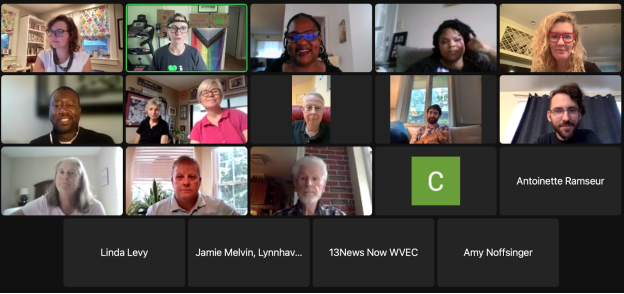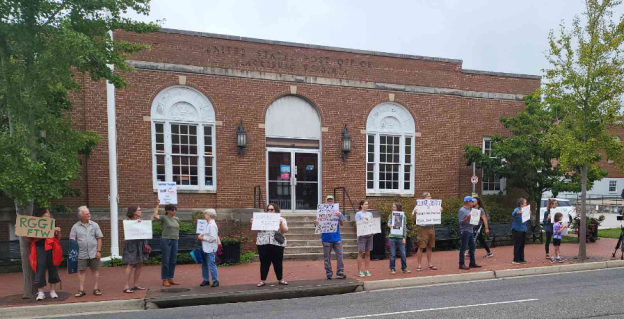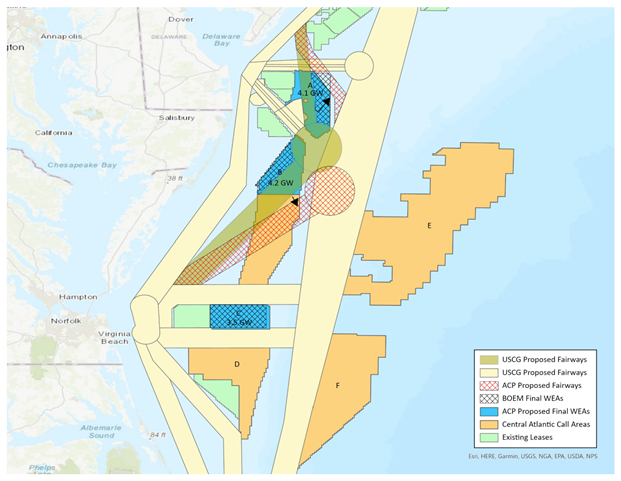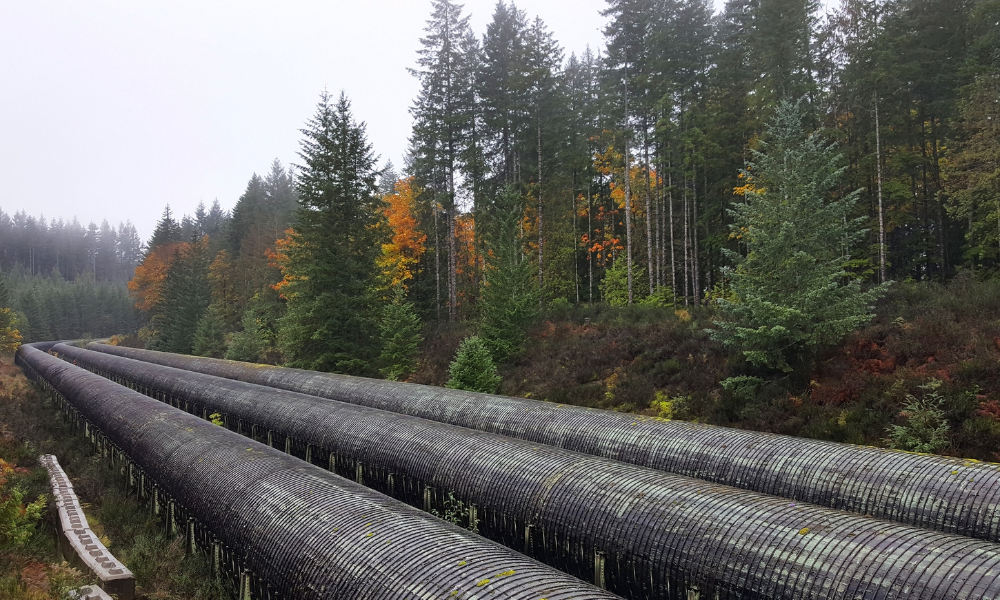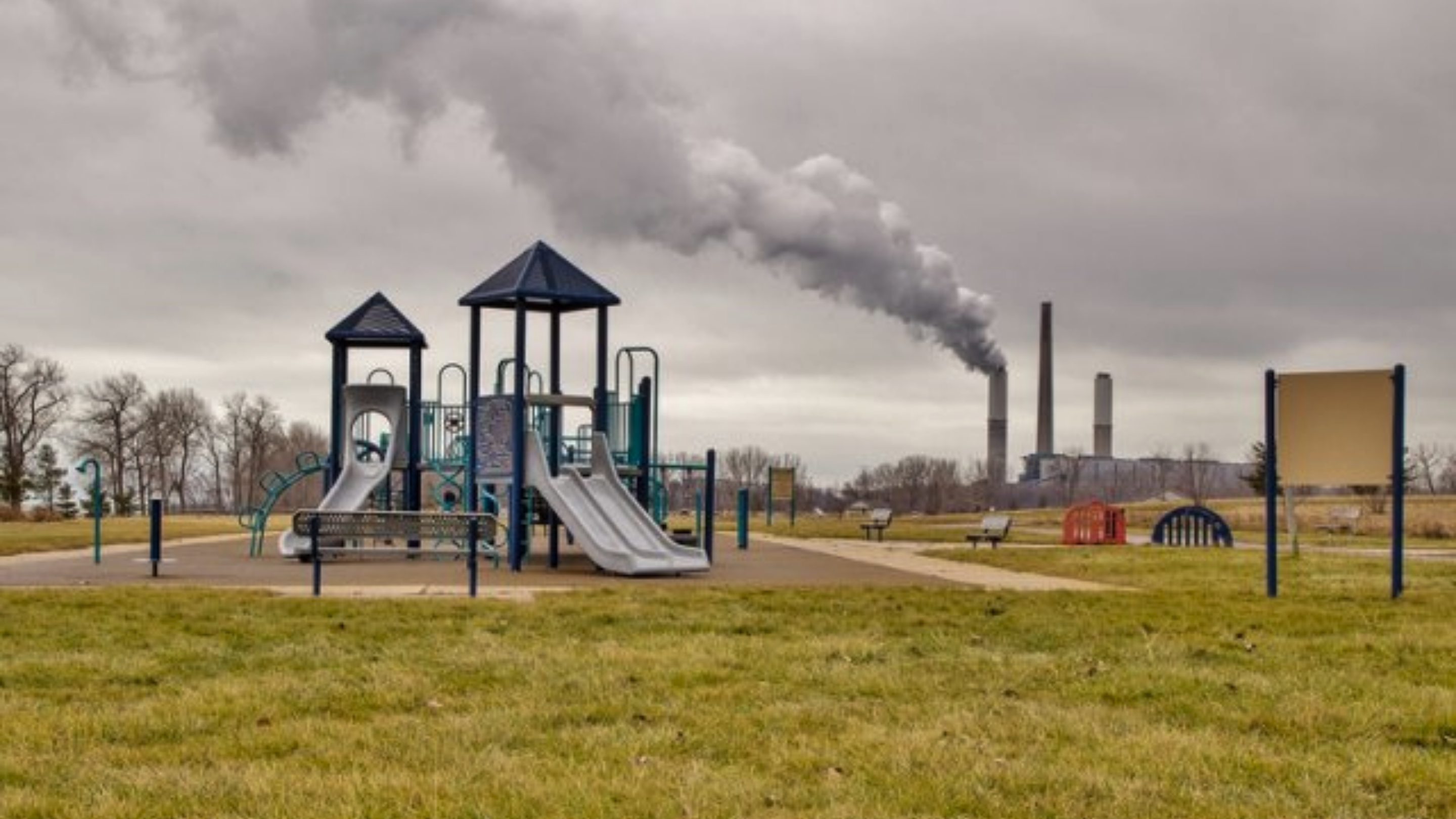RICHMOND, VA — Late Monday, environmental and community organizations filed a response opposing efforts by the U.S. Department of Justice and Mountain Valley Pipeline, LLC, to dismiss the environmental groups’ pending challenge to the latest biological opinion and incidental take statement under the Endangered Species Act for the ill-advised Mountain Valley Pipeline.
Also on Monday, the Southern Environmental Law Center on behalf of The Wilderness Society filed a response in another MVP case opposing motions to dismiss a challenge to authorizations for the project to cross the Jefferson National Forest.
The motions to dismiss the groups’ challenges follow the passage of the Fiscal Responsibility Act, which seeks to expedite the nonessential Mountain Valley Pipeline, enshrining congressional overreach over the courts and setting a dangerous precedent that could encourage future congressional action to force through other controversial fossil fuel projects.
The U.S. Court of Appeals for the 4th Circuit has already twice rejected the U.S. Fish and Wildlife Service’s prior authorizations for the pipeline project, finding that the agency failed to adequately analyze the project’s environmental context when assessing the detrimental impacts to the Roanoke logperch and the candy darter, a species on the brink of extinction.
The FRA has led MVP to gear up to resume construction along the pipeline’s route.
The response was filed by lawyers from the Sierra Club, Appalachian Mountain Advocates and Center for Biological Diversity on behalf of Wild Virginia, Appalachian Voices, Indian Creek Watershed Association, Preserve Bent Mountain, Preserve Giles County, West Virginia Highlands Conservancy, West Virginia Rivers Coalition, Chesapeake Climate Action Network, Sierra Club and Center for Biological Diversity.
“Appalachian communities, water resources, and species should not be subject to political whims and unprecedented congressional interference,” said Peter Anderson, Virginia policy director for Appalachian Voices. “Courts must retain their power and responsibility to review our environmental protections from dangerous projects like the Mountain Valley Pipeline.”
“Whatever happened to checks and balances?” asked Sierra Club Senior Campaign Representative Caroline Hansley. “Congress should never have overextended its powers to try to tell the courts how to do their jobs. When communities, climate, and habitats are at risk, there is just too much at stake.”
“In essence, Congress and the president have attempted to nullify the Endangered Species Act and the rights of Americans to be involved in their own government decisions — all to give a special deal to profit-making corporations,” said David Sligh, Wild Virginia’s conservation director. “This does violence to the Constitution, and we cannot accept it without challenge.”
“This is not a problem of Congress putting its thumb on the scale in favor of the government; instead Congress is attempting to throw out the scale entirely and unilaterally declare the government the winner,” said Anne Havemann, general counsel for the Chesapeake Climate Action Network. “Together, we have been fighting MVP for eight years and we won’t stop now.”
“Speaking on behalf of the endangered candy darter that once thrived in our creeks, something just smells fishy (and unconstitutional) about Congress passing a law that attempts to snuff out a valid lawsuit against a government agency simply by declaring the government the winner,” said Indian Creek Watershed Association President Howdy Henritz.
“Mountain Valley Pipeline is an environmental disaster that’s already caused significant harm to sensitive streams and imperiled wildlife,” said Jared Margolis, a senior attorney at the Center for Biological Diversity. “There’s no way this pipeline could ever comply with bedrock environmental laws. Cronies in Congress are attempting to force this project through, ignoring the harms and giving a free ride to corporate interests. Congress should never have tried to undermine the court’s authority, and the pipeline should not be built.”
“Legislators seemed to forget that front and center of our ‘national interest’ is the social, physical and economic well being of our people — many of whom are environmental justice communities in the path of MVP’s aging pipe,” Roberta Bondurant of Preserve Bent Mountain, a local member group of the POWHR Coalition, said, “If ushered forward, MVP will continue to threaten our drinking water, our ever more fragile environment, and will pose sure and continuing risks to Appalachian life, limb and property — and this doesn’t speak to the global impacts of MVP methane. We refuse to be governed by the gas industry. We hold fast to our constitutional right to be heard.”
“From the beginning, MVP was rammed through, with federal agencies bowing to political pressure,” said SELC President and Executive Director DJ Gerken. “Now Congress has bowed to the developer’s interest too and tried to force the courts to get in line. With this challenge we, along with The Wilderness Society and other environmental and community groups, are standing up for our communities, our forests, and our right to seek justice from an independent court system. No one is above the law and the independent court system is the essential protector of our democracy. We continue to fight because it’s too dangerous not to.”
“Mountain Valley could not build their pipeline in compliance with the law, so they appealed to Congress to interfere with the courts, skirting both our legal system and Constitution,” said Chase Huntley, VP of Strategy and Policy at The Wilderness Society. “The MVP rider buried in the Fiscal Responsibility Act attempts to ram through the pipeline, forcing it onto communities who have spoken out against its devastating impacts for nearly a decade. Because bedrock environmental laws stood in the pipeline’s path, Mountain Valley convinced Congress to reach beyond its powers and decide in Mountain Valley’s favor, circumventing the courts. We’re fighting to make sure our challenge to the Forest Service and Bureau of Land Management’s approvals for the pipeline to cross the Jefferson National Forest has its rightful day in court.”
###
The Sierra Club is America’s largest and most influential grassroots environmental organization, with millions of members and supporters. In addition to protecting every person’s right to get outdoors and access the healing power of nature, the Sierra Club works to promote clean energy, safeguard the health of our communities, protect wildlife, and preserve our remaining wild places through grassroots activism, public education, lobbying, and legal action. For more information, visit www.sierraclub.org.
###
Chesapeake Climate Action Network is the first grassroots organization dedicated exclusively to raising awareness about the impacts and solutions associated with global warming in the Chesapeake Bay region. Founded in 2002, CCAN has been at the center of the fight for clean energy and wise climate policy in Maryland, Virginia, and Washington, DC. For more information, visit www.chesapeakeclimate.org

